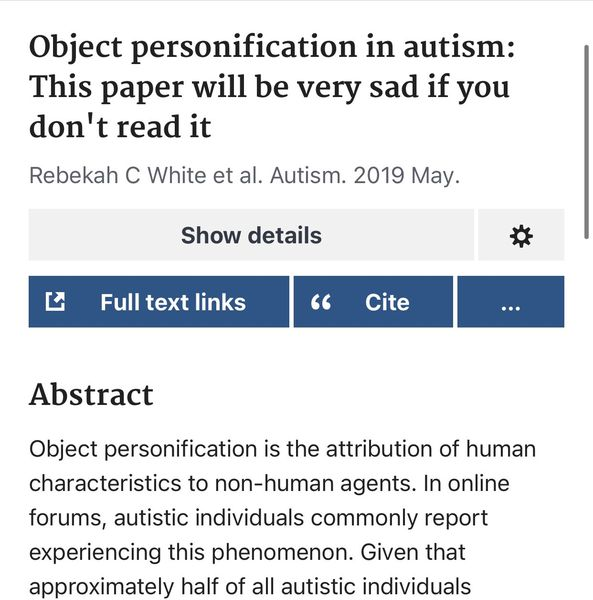this post was submitted on 09 Jul 2023
195 points (100.0% liked)
196
16436 readers
1584 users here now
Be sure to follow the rule before you head out.
Rule: You must post before you leave.
founded 1 year ago
MODERATORS
you are viewing a single comment's thread
view the rest of the comments
view the rest of the comments

https://doi.org/10.1177/1362361318793408
you can find it non-paywalled by pasting that into scihub, or zlib, or whatever the kids use these days.
https://sci-hub.st/https://journals.sagepub.com/doi/10.1177/1362361318793408
That's actually kinda neat. I wonder why it would be the case? It does initially come across as the opposite of what I expected to be the case.
I don’t know the answer, but I wonder if it’s something to do with human feelings and motivations appearing inconsistent and being difficult to understand for autistic people. Anecdotally, my brother understands what emotions are and recognises them in himself and others, but he finds it difficult to understand why people react or feel differently from him. He has empathy, but he can’t always apply it; if I’m upset and crying over something he doesn’t find upsetting he’s like ??????? By personifying objects he gets to imagine and practice empathy, without the vagaries of human emotion and individual differences muddying the waters.
I have nothing to base this on but my own experiences so I could be way off, but that’s my two cents!